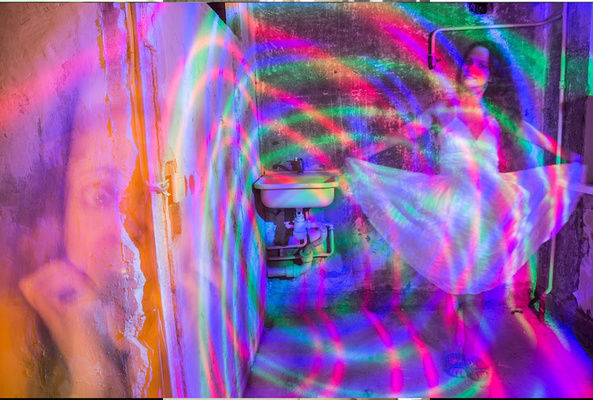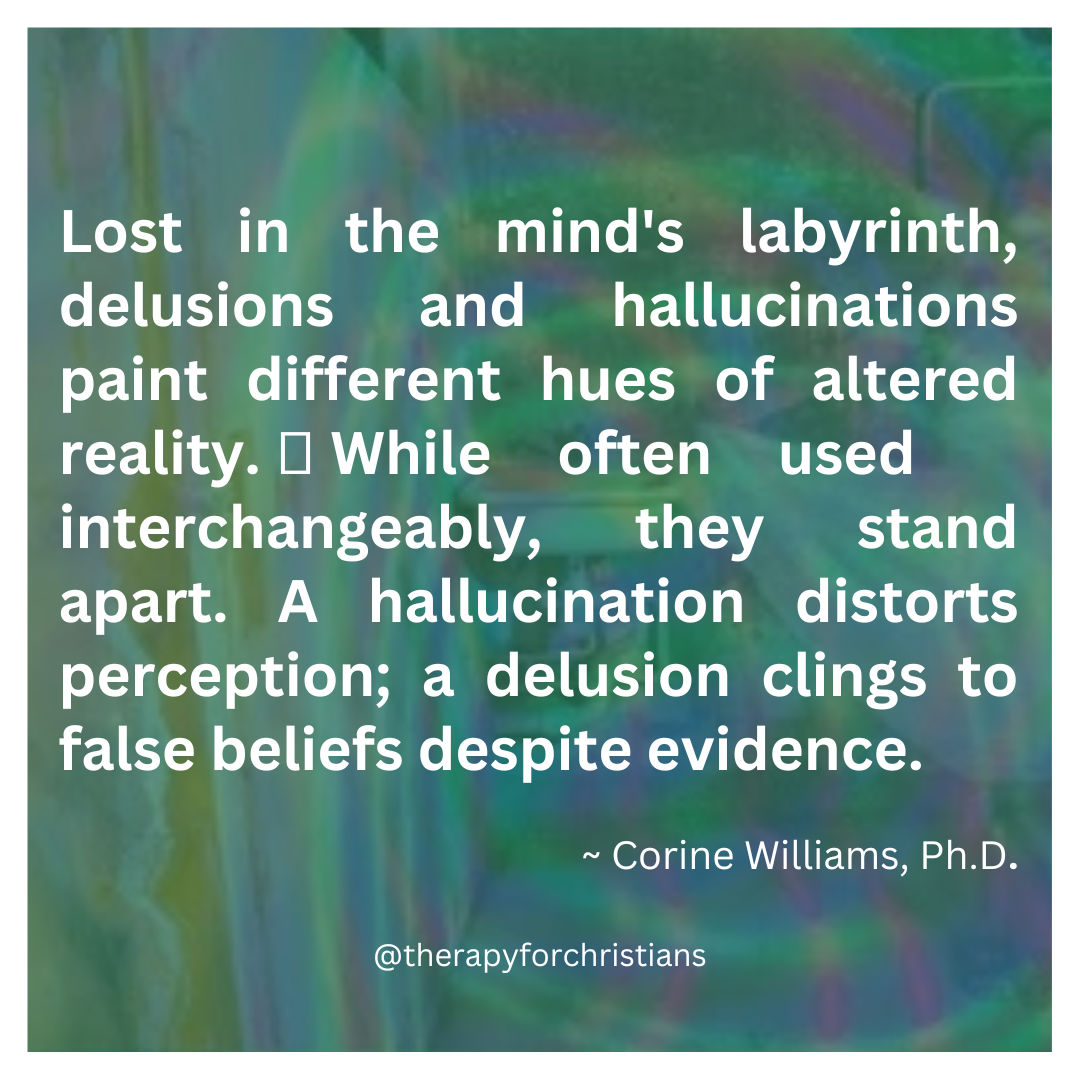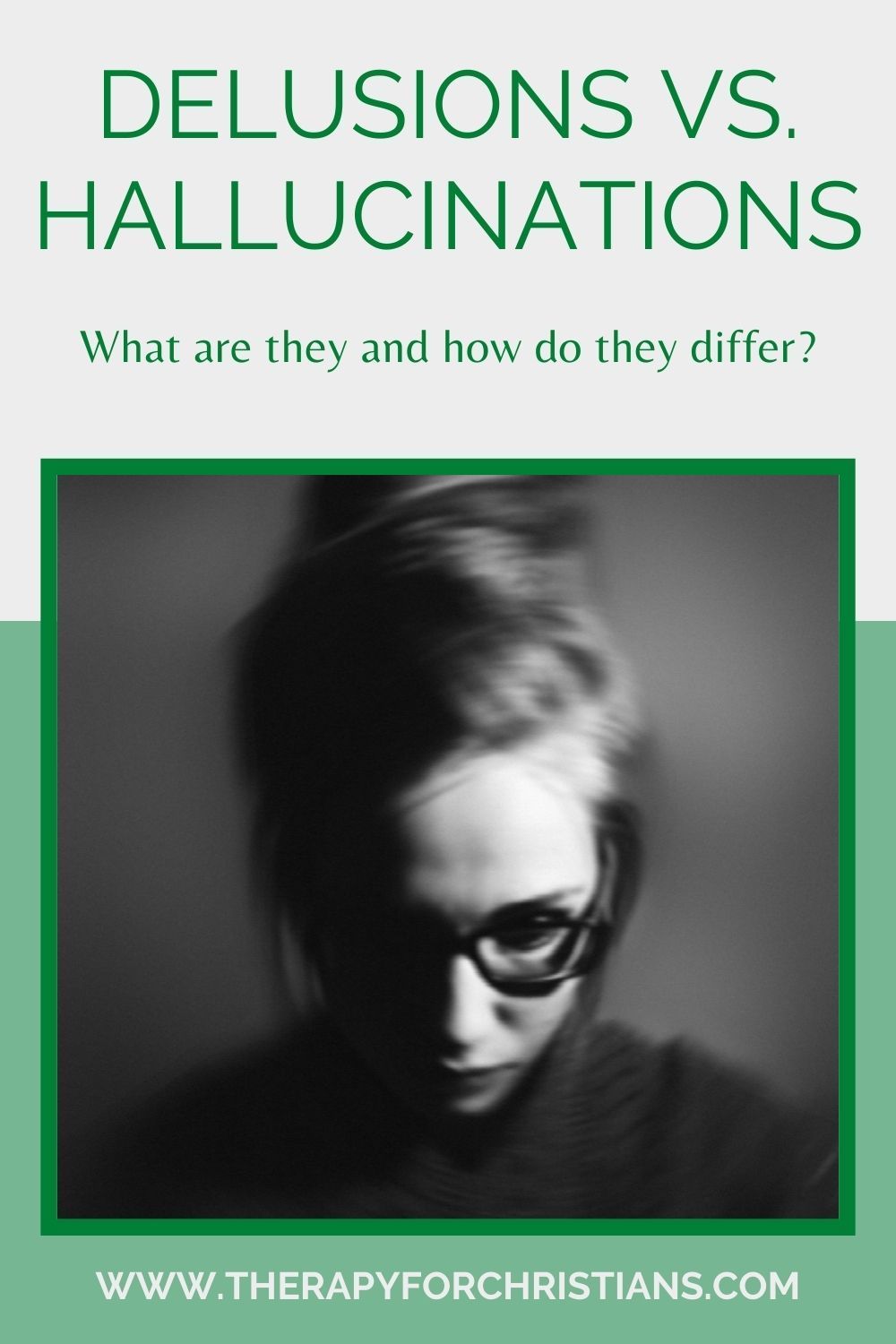
 When people lose contact with reality, they are frequently described as suffering delusions or hallucinations. In fact, most people use these phrases interchangeably and have no idea what the distinctions between delusions and hallucinations are.
When people lose contact with reality, they are frequently described as suffering delusions or hallucinations. In fact, most people use these phrases interchangeably and have no idea what the distinctions between delusions and hallucinations are.
While both delusions and hallucinations are indicators of mental like this content on Facebook diseases that change a person's perspective of reality; they are not the same thing. The causes, treatment, and results of delusions and hallucinations might differ.
like this content on Facebook diseases that change a person's perspective of reality; they are not the same thing. The causes, treatment, and results of delusions and hallucinations might differ.
The simplest way to tell the difference between hallucinations and delusions is:
A hallucination is a distorted view of reality.
A delusion is a mistaken belief that persists despite evidence to the contrary.
Neither hallucinations nor delusions are intrinsically harmful; nonetheless understanding the differences between delusions vs hallucinations can be helpful in diagnosis and treatment as well as in the management of mental health conditions that cause these symptoms. The information provided below will clarify the differences between hallucinations and delusions, as well as what to look for if you or someone you care about is experiencing either or both of these symptoms.
What Are Hallucinations?
"Hallucination" means "mind wandering" in Latin. While according to the dictionary, hallucinations, are "sensory experiences that are not caused by activation of the corresponding sensory organs."
Simply said, hallucinations happen when a person perceives something that isn't there. Auditory hallucination is the most common sort of hallucination, which involves hearing voices or other sounds that have no physical source.
Hallucinations are common in people with mental health problems such as schizophrenia and bipolar disorder, although they are not limited to these conditions.
Common Types of Hallucinations
Hallucinations are classified by their sensory impact. So, like your senses, hallucinations divide into five categories:
- Visual Hallucinations - Visual hallucinations involve seeing objects, people, lights, or patterns that are not actually present. Visualizing deceased family members, friends, or acquaintances can be traumatic for those experiencing visual hallucinations.
- Auditory hallucinations, also known as paracusia, are hallucinations in which you hear noises that aren't there. Hearing voices—sometimes numerous voices—or other sounds such as whispering or mumbling are examples of auditory hallucinations. The voices may appear hostile or demanding, and they frequently make demands on the hallucinating individual.
- Olfactory hallucinations, also known as phantomia, are a type of hallucination in which you perceive odors that are not there in your environment. Odors detected in olfactory hallucinations can be unpleasant or pleasant, and they differ from person to person. They might affect either one or both nostrils.
- Tactile hallucinations are characterized by an abnormal or erroneous sense of touch or sensation on the body or beneath the skin. They are typically associated with mental illnesses or the usage of narcotics.
- Gustatory hallucinations are similar to olfactory hallucinations in that they employ your taste buds instead of your sense of smell. These tastes are typically strange or unpleasant. Gustatory hallucinations (often with a metallic taste) are a common sign of epilepsy.
Causes of Hallucinations
Hallucinations are created in the brain and appear quite real to the person experiencing them. As a result, they frequently cause a great deal of stress. The most common and well known cause of hallucinations is the mental illness schizophrenia. More than 70% of persons with schizophrenia have visual hallucinations, and approximately 60% have auditory hallucinations.
Other common causes of hallucinations include Parkinson's disease, Alzheimer's disease, dementia, epilepsy, and brain trauma. Detoxing from drugs or alcohol might result in hallucinations, which is why medical supervision is recommended.
Other possible causes of hallucinations are:
Migraines - One-third of those who suffer from this type of headache also experience a "aura," or visual hallucination. Aura can resemble a rainbow light crescent.
Substance use - following excessive alcohol consumption or the use of drugs such as cocaine, some people may see or hear things that aren't there; while LSD and PCP, among other hallucinogenic drugs, can cause you to hallucinate.
Sleep deprivation can cause hallucinations. People who haven't slept in days or who don't get adequate sleep may be more prone to hallucinations.
What Can Stop Hallucinations? Treatment of Hallucinations
Once your doctor has figured out what is causing your hallucinations, they will be able to propose the best therapy option for you. For example, if you have a mental illness such as schizophrenia, you may be prescribed therapy or medication to assist minimize your hallucinations.
Medications
Antipsychotics are the most common type of medicine used to treat hallucinations. Antipsychotic drugs work by blocking neurotransmitters, like dopamine, and slowing down or stopping nerve signaling and brain activity. Atypical antipsychotics used to treat hallucinations, and other psychotic symptoms include: risperidone, aripiprazole, olanzapine, ziprasidone, quetiapine, pimavanserin and clozapine.
Psychotherapy
Cognitive behavioral therapy (CBT) and psychoeducation are the two most frequent types of psychotherapy used to treat hallucinations. The purpose of utilizing CBT to treat hallucinations is to normalize the experience of hallucinations and to influence how a person experiencing hallucinations thinks about and reacts to these experiences. The goal is to make hallucinations less distressing and less disruptive in daily life while also improving the person's coping skills.
Because many people are reluctant to confess they suffer hallucinations, the purpose of psychoeducation is to normalize the experience. Psychoeducation also entails assisting family members and friends in identifying strategies to support someone who is having hallucinations.
Repetitive transcranial magnetic stimulation (rTMS)
Some preliminary evidence suggests that repetitive transcranial magnetic stimulation (rTMS), a very non-invasive method that involves putting a small magnetic device directly on the skull, can help some patients with schizophrenia lessen the frequency and severity of auditory hallucinations.
Delusional disorder, formerly known as paranoid disorder, is a serious mental health condition. Delusions are false beliefs that the person think is real. While delusional beliefs frequently involve objects that appear to be real but are not, they are not the same as hallucinations. A person suffering from delusions is unwilling to let go of these convictions despite contrary evidence, but a person experiencing hallucinations is usually aware that what they are experiencing is not real.
Types of Delusions
Although there are several varieties of delusions, delusional thought tends to follow a pattern. As a result, delusions are divided into categories according on their themes. The following are examples of delusory themes:
- Persecutory Delusions - Are thought to be the most common type of a delusion. People who have persecutory delusions are paranoid and believe that they are being watched. People who have a persecutory delusion may also think that other people are out to hurt them, as well. Most of the delusions that people with schizophrenia have are persecutory in nature.
- Delusions of Infidelity - is the false belief that their partner or spouse is cheating or unfaithful. This sort of illusion, often known as Othello's disease, affects both men and women. A person suffering from this form of delusion may constantly accuse their partner of adultery, hunt for evidence to back up their claim, frequently interrogate their partner about alleged cheating activity, and may stalk their relationship.
- Grandiose Delusions -Beliefs that revolve on being a powerful person, such as feeling that everyone is envious of you.
- Bizarre Delusions - While most delusions can be classified as "bizarre," the term has a particular meaning in this context. Bizarre delusions are delusional notions that cannot be real under regular conditions. One example is believing that someone has influence over one's mind.
- Erotomanic Delusions - Erotomania is a type of paranoid delusion that is quite infrequent. These are delusions in what a person believe that another person is in love with her or him (usually celebrity). This could be harmless or lead to behaviors such as stalking.
- Somatic Delusions - People who experience somatic delusions feel they have a medical illness or a parasite infection that they do not.
Conditions that Cause Delusions
The actual cause of the delusional disorder, like many other psychotic conditions, is unknown. However, scientists are investigating whether genetic, biochemical, environmental, or psychological variables have a role in making it more prevalent.
Genetic: The fact that delusional disorder is more common in people who have family members with delusional disorder suggests genes may be involved.
Biological: Delusional may also be connected to abnormal brain areas that control perception and reasoning. An imbalance of chemical messages in the brain/neurotransmitters can make it more likely for someone to have delusions.
Environmental/psychological factors: Stress has been linked to delusional condition. Specifically, we know too much alcohol and/or drugs can cause delusions. misuse may also play a role. Delusional disorder also appears to be more common in people who are socially isolated. 
What Can Stop Delusions? Treatment Of Delusions
Delusions can be about anything, and they can persist for months at a time without professional mental health treatment. Anyone experiencing illusions should seek professional treatment. However, this can be difficult because people suffering from delusions often do not believe they have a problem. Remember a person who is experiencing delusions believe they are real. As a result, concerned family members are frequently required to bring the matter to the notice of a medical practitioner. Medical treatment for delusions often involves a mix of medication and counseling.
Medications
Medications that may be prescribed include:
Antipsychotics, often known as first-generation antipsychotics, work by blocking dopamine receptors. Dopamine is a chemical messenger thought to play a role in the emergence of delusions.
Atypical antipsychotics are drugs that block dopamine and serotonin brain receptors. As a result, second-generation antipsychotics have a distinctive side effect profile than first-generation antipsychotics.
Tranquilizers: These drugs are sometimes used to relieve anxiety, restlessness, or sleep problems that are prevalent in patients with delusional disorders.
Antidepressants: If a person with a delusion has a mood problem, antidepressants may be used to treat depression.
Therapy
Cognitive behavioural therapy (CBT) is a type of treatment that teaches people how to recognize and alter unhelpful beliefs and behaviors. Family therapy is frequently used as part of the treatment. Close relatives can know and understand how to assist someone who is suffering delusions through treatment.
How is Psychosis Related to Hallucinations and Delusions?
Psychosis occurs when a person loses touch with the real world. This could include visualizing or saying problems that other people cannot (hallucinations), as well as believing things that are not true (delusions).
People who have experienced psychosis are more prone than others to struggle with substance abuse because they are self-medicating to cope with their psychotic symptoms including delusional thoughts and hallucinations.
Are You Possessed By a Demon if You Experience Hallucinations and/or Delusions?
People sometimes think that hallucinations and delusions are caused by demon possession. They are not. Both hallucinations and delusions are mental health disorders. Neither hallucinations or delusions have anything in common with the people who are possessed by demons in the Bible.
As Christians, if you or someone you know is struggling with mental illness, including delusions and hallucinations please pray for them but also help them seek mental health treatment. Speaking with a counselor can help you get a better understanding of what’s happening to you or your love one. A counselor can also help you develop coping strategies, particularly for when you’re feeling scared or paranoid.
Before you leave, we would appreciate it if you helped us spread the word by sharing, tweeting, pinning, etc. this post.
About the Author:
 Corine Williams, Ph.D. is Clinical Psychologist that is currently seeing clients through www.doctorondemand.com. However, her passion is to write books that educate, uplift, and help provide parents with a tool to talk about difficult subjects. You can find out more about her at www.booksbycorine.com or by visiting her amazon profile here: https://www.amazon.com/Corine-Hyman/e/B00AWZ5FL2
Corine Williams, Ph.D. is Clinical Psychologist that is currently seeing clients through www.doctorondemand.com. However, her passion is to write books that educate, uplift, and help provide parents with a tool to talk about difficult subjects. You can find out more about her at www.booksbycorine.com or by visiting her amazon profile here: https://www.amazon.com/Corine-Hyman/e/B00AWZ5FL2
Help us increase mental health awareness in the Christian community by donating through our paypal link here: www.paypal.com/therapyforchristians, joining our mailing list by clicking below, or join our provider list here: Provider listing
Disclaimer: the information, including but not limited to, text, graphics, images and other material contained on this article are for informational purposes only. No material on this site is intended to be a substitute for professional medical advice, diagnosis or treatment. If you are looking for a Christian counselor near you, please check out our directory located here: Christians Therapist Near Me.
Featured Christian Therapists
Specialty Psychiatrist or Nurse Practiti... Located in Cedar Rapids, IA
View Listing.png)

)-(4).jpg)









